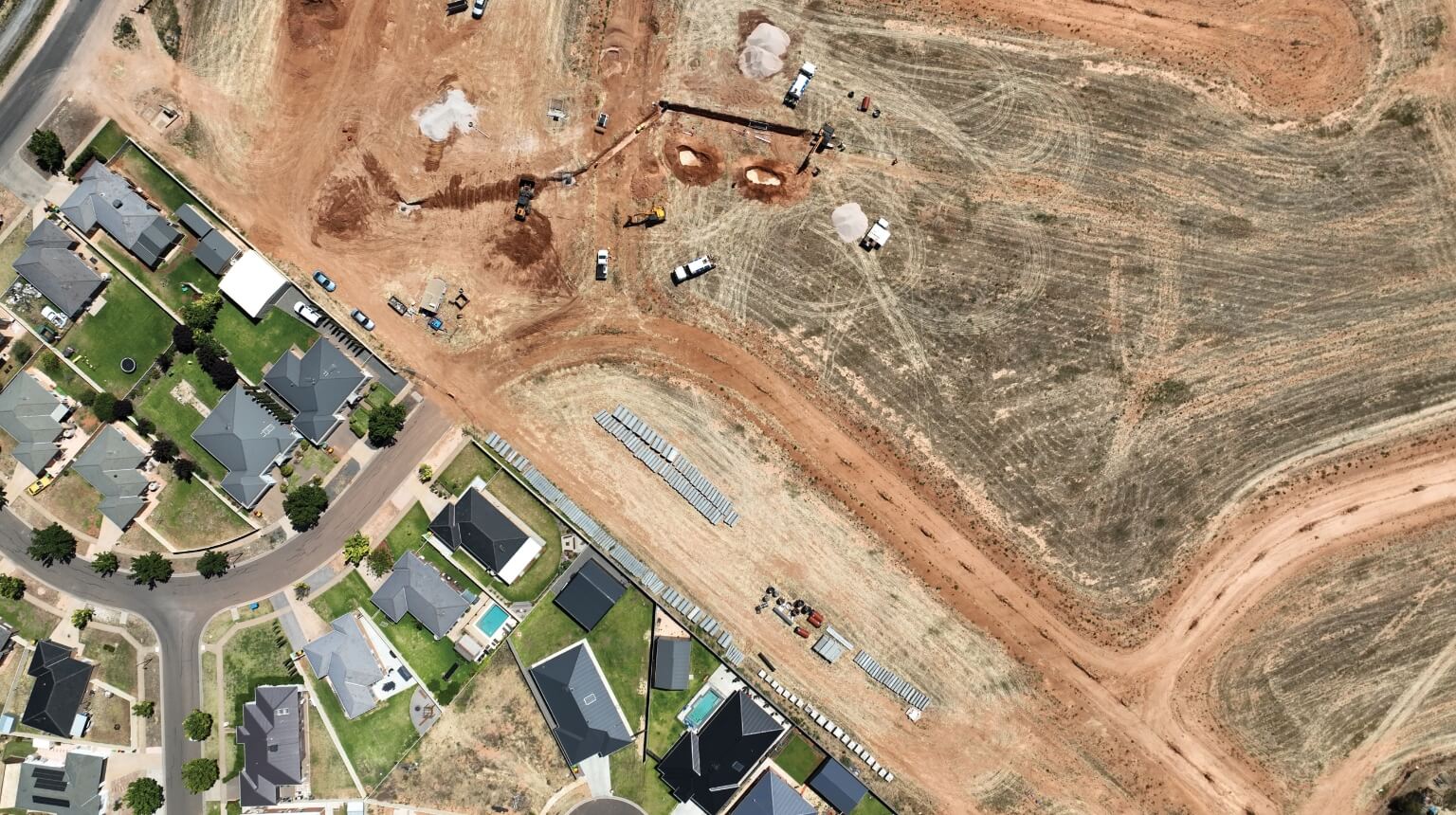Before pouring the concrete, laying the bricks, installing the frame, or even hammering a single nail, every construction project requires one crucial element – finance.
Construction projects in the residential and commercial space have had to contend with more than their fair share of complexity in recent years amid rising material costs, delayed approvals, labour shortages, and general economic uncertainty.
Despite these challenges, builders and developers remain eager to commence projects, increasing the demand for flexible financing solutions.
This backdrop provides the foundations of a compelling opportunity for finance brokers, the masters at finding bespoke solutions for their clients.

Building demand
Recent trends in the value of construction work and building approvals in Australia showcase that there is opportunity in the construction space, if you know where to look.
In fact, figures from the ABS Building Approvals dataset for January 2025 showed that the number of dwellings approved rose by 21.7 per cent over the year (and 6.3 per cent on the previous month), jumping to 16,579. The value of the buildings approved also rose, with total residential building values rising to a record high of $9.04 billion (up 4.5 per cent).
Meanwhile, the value of non-residential buildings was 11.3 per cent higher than the value reported during January 2024 (but dipped 20.7 per cent to $5.69 billion on December 2024 figures).
It has been a volatile period for approvals though. For instance, the value of non-residential building work dipped 3.1 per cent in the three months to December 2024 (total value at $14.6 billion), according to the most recent Construction Work Done dataset from the Australian Bureau of Statistics (ABS), 9.6 per cent lower than the same period in 2023.
But residential work trended in the opposite direction, rising 0.9 per cent in the December quarter (total value at $23.7 billion) and 5.7 per cent year on year.
Steven Tropoulos, group director at property finance and advisory Highfield Private, says demand for construction loans has been steadily rising with stabilising property values and a renewed focus on custom-built properties.
“More clients are looking for opportunities to build homes or commercial properties tailored to their specific needs, whether for personal use or as investment properties,” Tropoulos says.
“This demand is driven by the scarcity of affordable existing properties, as well as ongoing supply chain challenges, which continue to push buyers toward new builds.”
Meanwhile, Isabella Constantinou, broker at finance brokerage Simplicity Loans & Advisory, says the commercial side of this segment has been characterised by focus on the financial stability of the builder, larger buffers on loan terms that allow for delays – not just during construction but also at the back end – and an increased participation from non-banks and private lenders.
“The biggest shift I have probably seen is the adoption of the non-bank and private space by builders and developers,” Constantinou says.
“Five years ago, this would not have been as prominent, but COVID, cost escalations and market changes have all meant that builders and developers have had to shift their expectations to lending solutions outside of the banks to get a project done.”
Constantinou also notes less demand for presale lending and a greater demand for flexible contract agreements with builders.
“Developers don’t want to get sales prior to commencement of construction because the market is changing all the time, at the moment. If they obtain presales prior to commencement then they are likely giving up 10 to 15 per cent profit in the higher sales prices they would likely achieve at the end of the projects once complete,” Constantinou says.
“While costs have somewhat stabilised, builders are still wanting allowances in their quotes for increases/variations and we’re seeing more demand for lending solutions that accept cost plus or a version of this type of contract as opposed to fixed price contracts.”
Focus on your relationships with the other stakeholders outside of the lender – relationships with valuers, QS firms, solicitors all play such a big part in a successful construction project
- Isabella Constantinou, Simplicity Loans & Advisory
Custom-built
The evolving nature of Australia’s construction industry makes it increasingly important for brokers to be able to offer bespoke solutions. And it’s an area where brokers can add value.
Constantinou says builders or developers who have typically funded projects through direct relationships may not be aware of the types of solutions that exist and brokers can help offer alternative and tailored debt solutions.
“Brokers in this space have a huge opportunity to structure creative, flexible and tailored solutions that might be a combination of bank plus mezzanine finance or a stretch senior position at a higher LVR,” Constantinou says. Tropoulos also notes the importance of relationships, with success in this segment hinging on clear communication and a deep understanding of a client’s business.
“It’s essential to have thorough discussions with clients to understand the full scope of the project. Many construction projects can have complexities related to planning, permits, or unforeseen delays, and brokers must be ready to adapt solutions accordingly,” Tropoulos says.
“Having strong relationships with builders, architects, and project managers is [also] a significant advantage. Brokers who stay well-connected within the construction industry can better assess the viability of projects and offer informed advice to clients.”
For Constantinou, a solid understanding of the construction industry is also crucial.
“My advice to brokers wanting to play in this space is make sure your understanding is solid around how lenders assess projects, risk profiles and feasibilities as these will be the conversations you have to have with the client,” Constantinou says.
“Also focus on your relationships with the other stakeholders outside of the lender – relationships with valuers, QS firms, solicitors all play such a big part in a successful construction project.”



